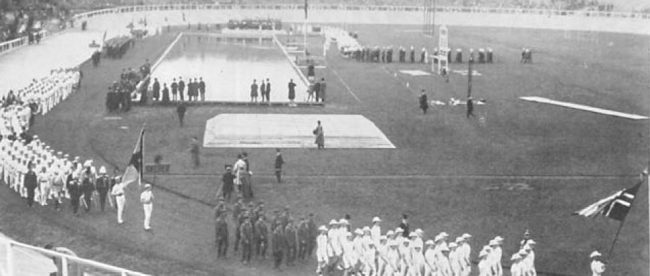When a Calendar Defeated Russia in the Olympics

If you were to turn your calendar to January 7th, you’d likely see the words “Christmas (Eastern Orthodox)” or something similar on that date. To those of you who celebrate it, Merry Christmas! Everyone else, you’re probably wondering why there’s an entire religion that observes Christmas weeks after you do.
The reason for the discrepancy? Partially, it’s Julius Caesar’s fault. Over 2,000 years ago, he promulgated the Julian calendar, a base-365 day calendar that erred in its accounting for leap years. As time progressed the calendar fell out of sync with the seasonal equinoxes; before long, Easter, in particular, wasn’t where it should have been. Finally, in 1582, Pope Gregory XIII had enough of this and mandated that Catholic nations switch to a new calendar, the Gregorian one (like Caeser’s, it’s named after him), which solved that problem.
Unfortunately, the switch didn’t go too smoothly. First of all, it required that ten days be skipped in order to align the dates and the stars correctly. Second, not everyone made the change-over at the same time—in fact, it took centuries. Sweden made its transition slowly over forty years, from 1700 to 1740 (and screwed it up, resulting in history’s first and only February 30th). The British Empire (the U.S. included) didn’t switch until September of 1752. Greece, the last nation to switch (of course they were), did so in 1923.
Russia was one of the final nations to adopt the new calendar, doing so in 1918 after the Bolsheviks took over. Ten years prior, however, they were on the Julian calendar and the UK was on the Gregorian one. That’s of specific importance because that year, 1908, London hosted the Summer Olympics, and Russia was participating.
If you look at how the Russian Empire fared at the Olympics, it’s not immediately clear that the asynchronous calendars played any role at all. A total of six Russian athletes are listed as having competed, with three of them taking medals: Two silvers in wrestling and one in figure skating. But the Russians, officially, entered a team in another event: Shooting.
On July 11, 1908, the U.S. edged out Great Britain to take gold in the event. The Russians don’t appear on the standings and were non-competitive. Not because they weren’t any good, but rather because they weren’t present. While they arrived to town a few days before July 11, they did so according to the wrong calendar. Unlike the other teams, the Russian shooters arrived on the Julian date, which was twelve days after the Gregorian one. The event was long finished.
Bonus fact: Record-keeping in the 1908 Games wasn’t great, to say the least. Turkey (then the Ottoman Empire) may have competed, but we’re not sure. According to some sources (pdf), a man known only as Mr. Moullos may have been the country’s lone representative. However, there’s no mention of him or any other Turkish citizen in the official records of the Games.
From the Archives: Pulling for Gold: The schoolhouse game which was once an Olympic endeavor.
